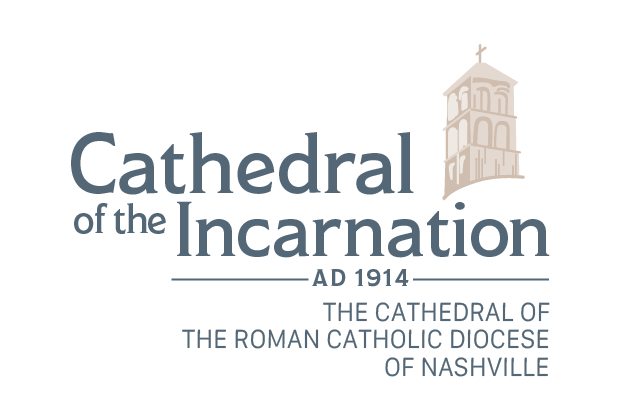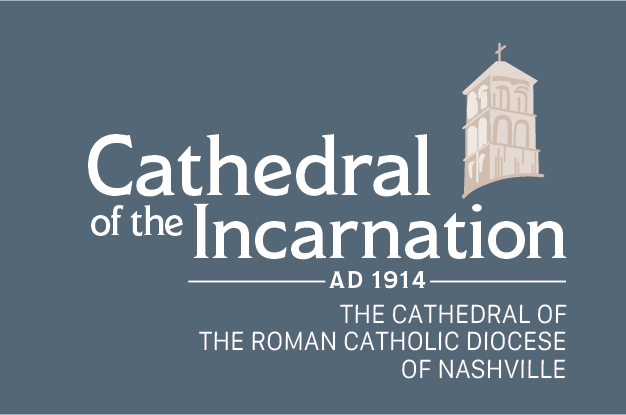Prayer is communion with God. Prayer can be public or personal, spoken or silent. The psalms are prayers we sing; they have been a part of the Church’s communal prayer since the earliest days of the Church. Prayer is communication with a God who loves us and desires to be in relationship with us.
Jesus teaches us about the importance of prayer. The Gospels record seventeen times that Jesus took time apart to pray. In the Scriptures, Jesus prays often, morning and night. He prays during critical events in his life and he prays before ministering to people in need. Jesus is a model of prayer for us.
Prayer is essential to living a full, Catholic life. The central communal form of prayer for the Church is the Mass. Some of the Church’s most traditional and foundational prayers are as follows:
Grace before Meals
Bless us, O Lord, and these your gifts which we are about to receive from your goodness, through Christ our Lord. Amen.
Glory to the Father
Glory to the Father, and to the Son, and to the Holy Spirit: as it was in the beginning, is now, and will be forever. Amen.
The Lord’s Prayer
Our Father, who art in heaven, hallowed be thy name; thy kingdom come, thy will be done on earth as it is in Heaven. Give us this day our daily bread, and forgive us our trespasses, as we forgive those who trespass against us; and lead us not into temptation, but deliver us from evil. Amen.
Hail Mary
Hail, Mary, full of grace. The Lord is with you. Blessed are you among women; and blessed is the fruit of your womb, Jesus. Holy Mary, Mother of God, pray for us sinners, now and at the hour of our death. Amen.
Act of Contrition
My God, I am sorry for my sins with all my heart. In choosing to do wrong and failing to do good, I have sinned against you whom I should love above all things. I firmly intend, with your help, to do penance, to sin no more, and to avoid whatever leads me to sin. Our Savior Jesus Christ suffered and died for us. In his name, my God, have mercy.
Hail, Holy Queen
Hail, holy Queen, Mother of mercy, hail, our life, our sweetness, and our hope. To you we cry, the children of Eve; to you we send up our sighs, mourning and weeping in this land of exile. Turn, then, most gracious advocate, your eyes of mercy toward us; lead us home at last and show us the blessed fruit of your womb, Jesus: O clement, O loving, O sweet Virgin Mary.
There are also contemporary ways to pray. Talking with God each day, no matter the form or words used, nourishes our relationship and helps it to grow.
Silent prayer or meditation helps us center our thoughts on God’s goodness and offers renewal in a noisy, hectic world.
Lectio Divina is a way of praying with the sacred Scriptures. Find a Scripture passage that speaks to you. Read it out loud and then reflect upon it silently for several minutes. Read it again. Notice any words or phrases that stick with you. Ask God what you are to learn from this passage. Listen.
Keep a prayer journal with all of your wants, needs, thoughts and reflections related to your prayer life.
Scripture
Catholics believe that the Bible is God’s self-revelation written in an inspired and inerrant way.
Catholics believe that the Bible is God’s self-revelation, inspired and inerrantly written. The Bible is not like any other book. Because the Scriptures were written under the positive influence of the Holy Spirit, they are considered to be sacred literature. We believe that God is revealed through the Patriarchs and Prophets in the Old Testament and through Jesus Christ in the New Testament. God’s revelation is also entrusted to the Apostles and their successors so that the Word of God is revealed in both Scripture and Tradition. Catholics believe that the Bible is a living document—it continually speaks to believers in every age.
Saints
The saints are exemplars of how to follow Christ; they teach us how to live faithful and holy lives.
All believers, living and dead are a part of the Communion of Saints. The Catechism says, “We believe in the communion of all the faithful of Christ, those who are pilgrims on earth, the dead who are being purified, and the blessed in heaven, all together forming one Church; and we believe that in this communion, the merciful love of God and his saints is always [attentive] to our prayers” (CCC 962).
The saints are exemplars of how to follow Christ; they teach us how to live faithful and holy lives. The saints are our advocates and intercessors, and they are also friends and mentors.
The Saints in Scripture
In scripture, Paul addresses many of his letters to the various local communities under the title of “saints:” Romans, 1 and 2 Corinthians, Ephesians, etc. The term “saints” was also applied to those whom Christians served. In 1 Corinthians we read that Paul made a collection in Corinth for the relief of the saints in Jerusalem.
Paul also talks about the Communion of Saints in that each of us participates by baptism in the one Body of Christ. In his letter to the Romans, Paul tells us “For as in one body we have many parts, and all the parts do not have the same function, so we, though many, are one body in Christ and individually parts of one another. Since we have gifts that differ according to the grace given to us” (Romans 12:4-6).
Paul is very clear that members of this common body had obligations to build up the community – these members were called “saints.” This is connected with the Jewish idea of being a holy nation, a covenanted people. The “saints” are those who have inherited the covenant.
Martyrs
As Christianity developed, the word saint came to be used more commonly to designate specific individuals who were held to be exemplars of the faith, and who were commemorated or venerated as inspirations to other Christians.
In the beginning of our Church’s history, many witnessed to their faith by giving their lives. Many of the followers of Christ were martyred rather horrendously. Some early saints were stoned, as was Stephen. In the Acts of the Apostles we read: “They threw him out of the city, and began to stone him….As they were stoning Stephen, he called out, ‘Lord Jesus, receive my spirit.’ Then he feel to his knees and cried out in a loud voice, ‘Lord, do not hold this sin against them;’ and when he said this, he fell asleep” (Acts 7:58-60).
Tradition has it that Peter chose to be crucified upside down and that St. Paul was beheaded. Ignatius of Antioch, was “ground like wheat” by the teeth of animals. Perpetua and Felicity, two young women, had to wait until after Felicity’s baby was born before they could face the lions. During this time Perpetua wrote down her thoughts, giving us a firsthand account of martyrdom.
Tertullian rightly said that the blood of the martyrs was the seed of the Church.
Canonization
Since the 10th century, the Church has officially applied the standard of holiness of life to certain individuals who lived exemplary Christian lives and through a lengthy process of prayer and study have declared that the individual is in heaven. Contrary to the belief of some, the Church does not “create” saints, but simply applies the standard of gospel holiness to those God permits the Church to know are in heaven. Canonization is a process that includes the calling forth of witnesses, verification of miracles and other holy actions and much research and scrutiny.
There are many books on the saints. For more information and resources on the saints, visit www.osv.com.
Mary
Mary is the greatest among the saints. At the Annunciation, Mary said “yes” to God and became the Mother of Jesus, the eternal Son of God incarnate.
Hail, favored one! The Lord is with you,” But she was greatly troubled at what was said and pondered what sort of greeting this might be. Then the angel said to her, “Do not be afraid, Mary, for you have found favor with God. Behold, you will conceive in your womb and bear a son, and you shall name him Jesus. He will be great and will be called Son of the Most High, and the Lord God will give him the throne of David his father, and he will rule over the house of Jacob forever, and of his kingdom there will be no end. (Luke 1:28-33)
Mary is the greatest among the saints. At the Annunciation, Mary said “yes” to God and became the Mother of Jesus, the eternal Son of God incarnate. We believe in Mary’s Immaculate Conception (that she was without sin from the moment of her conception and she remained “full of grace” by the saving work of the son she was to bear) and that, because of her sinless state, she was assumed bodily into heaven. The Church also teaches that Mary is ever-virgin – before and after the birth of Jesus.
Mary embraced her vocation of being God’s partner in the work of redemption. Mary is the mother of Jesus, who is God. Jesus made her sinless from her first moment of existence in her mother’s womb because of the singular role she was to play in our salvation. No other human person offers as vital and direct a link in the coming of Christ. The Magnificat, or Canticle of Mary, is the longest set of words uttered by a woman in the New Testament.



